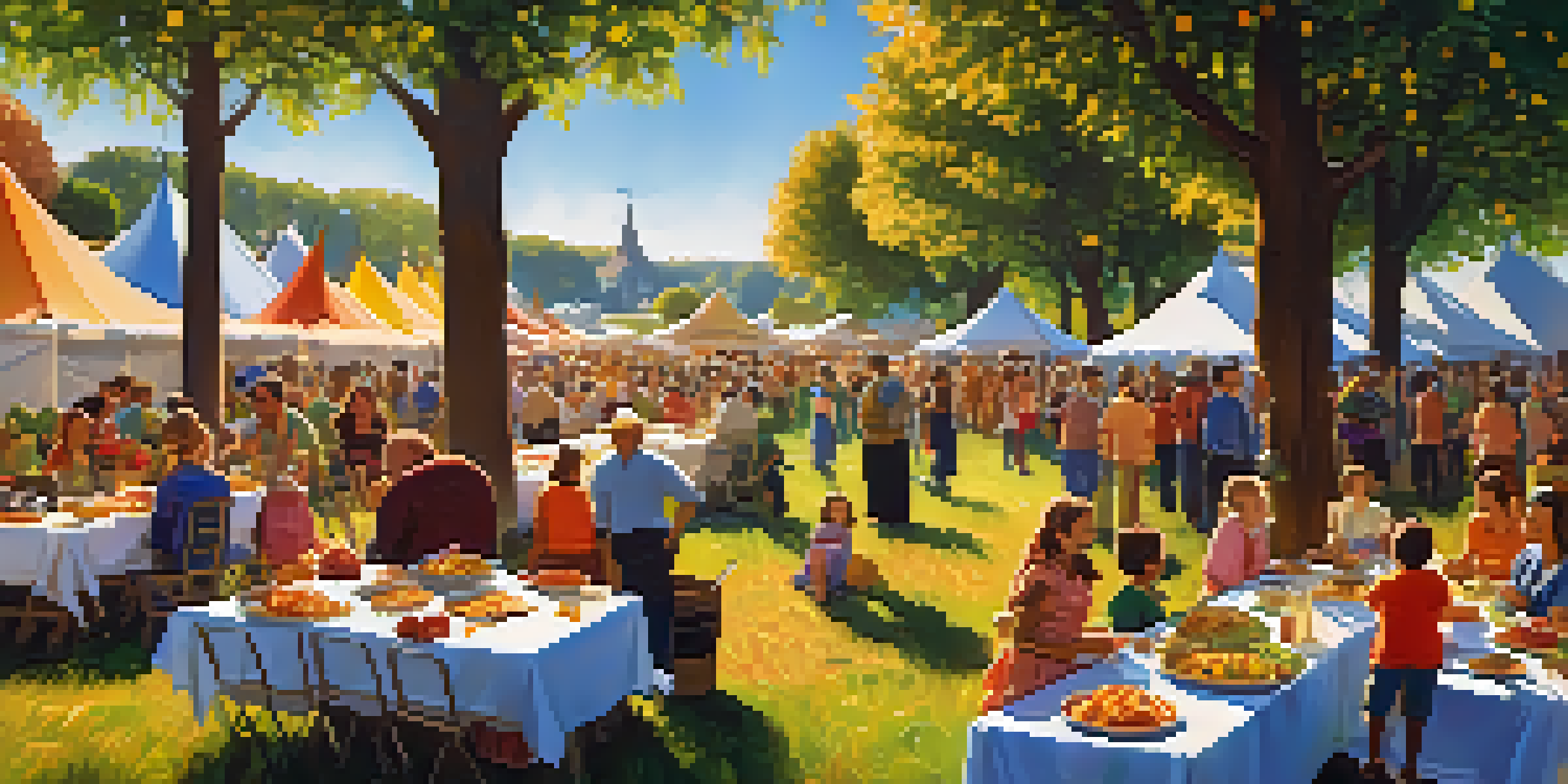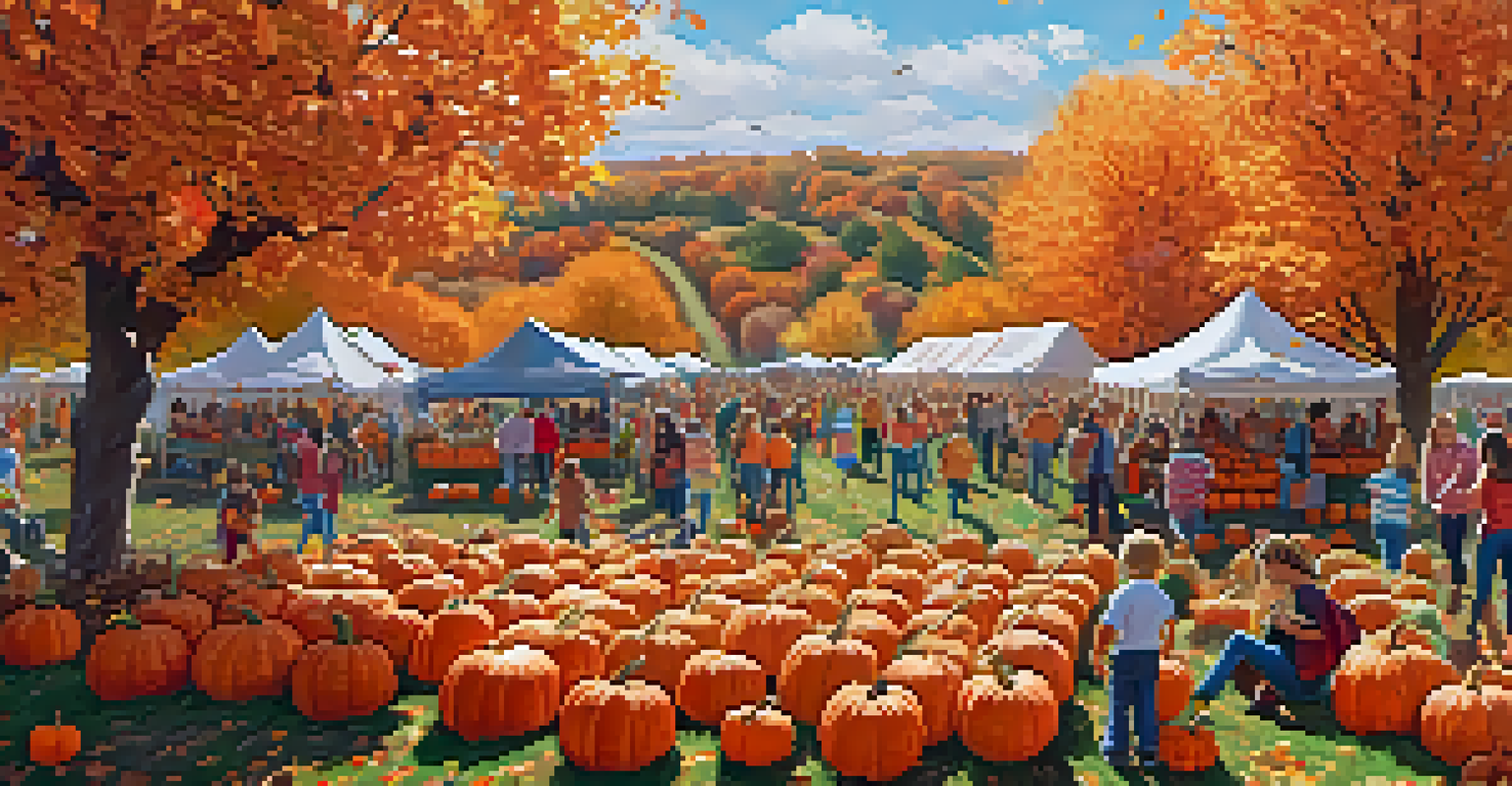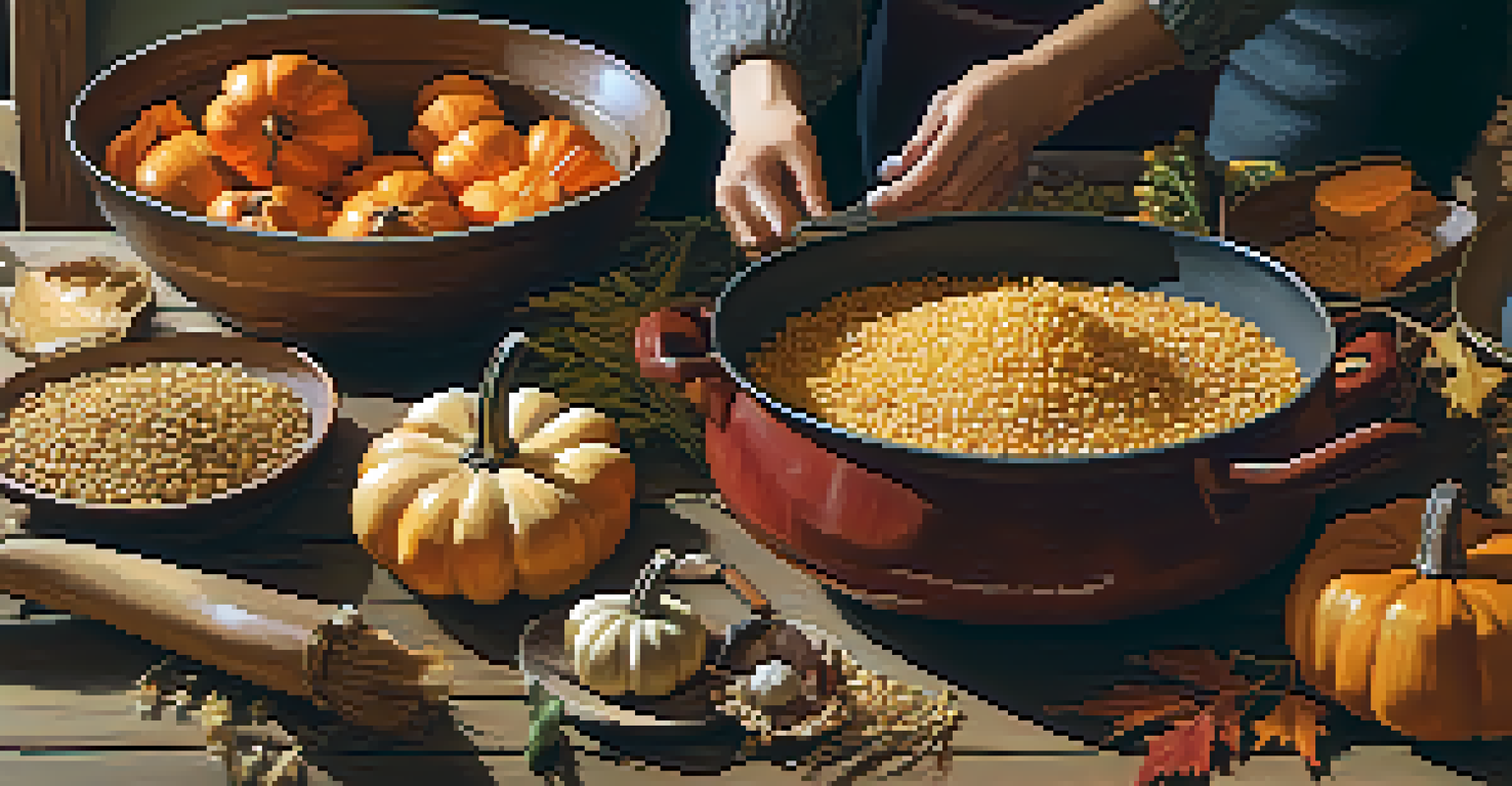Harvest Festivals: Celebrating the Bounty of Rural Farming

Understanding the Origins of Harvest Festivals
Harvest festivals have deep roots in human history, marking the end of the agricultural cycle. Traditionally, these celebrations were held to give thanks for the bounty of crops gathered from the fields. Cultures around the world have developed unique customs to honor this important time, often tied to the changing seasons.
Agriculture is our wisest pursuit, because it will, in the end, contribute most to real wealth, good morals, and happiness.
In ancient societies, such as the Greeks and Romans, harvest festivals involved rituals and offerings to deities for a fruitful season. These ceremonies not only reflected the agricultural practices of the time but also played a crucial role in community bonding. As people gathered to celebrate, they shared stories and strengthened their connections.
Today, many of these ancient traditions continue, showcasing the importance of agriculture in our lives. Harvest festivals serve as a reminder of our dependence on the land and the communal spirit that comes with farming. They invite us to reflect on how far we’ve come in our relationship with nature and food production.
Cultural Variations of Harvest Festivals
Harvest festivals differ widely across cultures, each reflecting local customs and agricultural practices. For instance, Thanksgiving in the United States centers around gratitude for a successful harvest, featuring feasts of turkey and pumpkin pie. Similarly, the Indian festival of Pongal celebrates the harvest of rice, marked by cooking a special dish of the same name.

In Europe, the Oktoberfest in Germany not only celebrates the harvest but also showcases local beer, music, and culture. These festivals often incorporate parades and competitions, creating a festive atmosphere filled with joy and community spirit. Each celebration is a unique blend of historical significance and contemporary enjoyment.
Harvest Festivals Celebrate Community
These festivals bring together families and neighbors, fostering a sense of belonging and shared experiences.
These cultural variations highlight the universal theme of gratitude while showcasing the uniqueness of each community’s relationship with farming. Regardless of the specific customs, the essence of these festivals remains the same: honoring the land and the hard work of farmers.
The Role of Agriculture in Harvest Festivals
At the heart of every harvest festival is the agricultural cycle, which dictates when and how these celebrations occur. Farmers work tirelessly throughout the year, tending to crops and ensuring a bountiful yield. When harvest time arrives, it’s a moment of both relief and celebration, marking the fruits of their labor.
The love of gardening is a seed once sown that never dies.
Agriculture, as a cornerstone of human civilization, plays a vital role in these festivals. It connects us to the earth and reminds us of the importance of sustainable practices. As we gather to celebrate, we also recognize the challenges faced by farmers, including climate change and market fluctuations.
Incorporating education about agriculture into these festivals can foster appreciation for the hard work involved in food production. By understanding where our food comes from, we can make more informed choices and support local farmers, ensuring that the tradition of harvest festivals continues for generations to come.
Activities and Traditions at Harvest Festivals
Harvest festivals are vibrant events filled with various activities that bring communities together. From pumpkin picking and corn mazes to craft fairs and live music, there’s something for everyone. These activities often reflect the local culture and the types of crops produced in the area.
One popular tradition is the sharing of food, where attendees enjoy dishes made from freshly harvested ingredients. This not only highlights the importance of local produce but also encourages a sense of togetherness among participants. Potluck-style meals allow everyone to contribute, fostering community spirit.
Cultural Variations Showcase Traditions
Different cultures celebrate harvest festivals in unique ways, reflecting local customs and agricultural practices.
Games and competitions, such as pie-eating contests or scarecrow-building contests, add a playful element to these festivals. These lighthearted activities create lasting memories and strengthen bonds among community members, making harvest festivals a cherished tradition.
The Significance of Community in Harvest Festivals
Community plays a pivotal role in the success and spirit of harvest festivals. These gatherings bring together families, friends, and neighbors, fostering a sense of belonging and togetherness. As people celebrate the harvest, they also celebrate their shared experiences and history.
In many rural areas, harvest festivals serve as an opportunity for local farmers to showcase their produce and connect with consumers directly. This relationship is essential for building a sustainable local economy and empowering farmers. By supporting these events, communities help ensure the survival of their agricultural heritage.
Moreover, the collective joy of celebrating a successful harvest strengthens social ties. Whether through shared meals, music, or storytelling, these interactions remind us of the importance of community support in all aspects of life, particularly in agriculture.
Modern Adaptations of Harvest Festivals
As society evolves, so do harvest festivals, adapting to contemporary values and interests. Many festivals now emphasize sustainability and local food systems, encouraging attendees to engage in eco-friendly practices. This shift reflects a growing awareness of environmental issues and the impact of agriculture on our planet.
Some modern harvest festivals incorporate educational workshops, teaching attendees about organic farming, composting, and other sustainable practices. This not only enhances the experience but empowers individuals to make positive changes in their own lives. It’s a way to bridge the gap between tradition and modernity.
Sustainability Shapes Future Festivals
As awareness of environmental issues grows, modern harvest festivals are increasingly emphasizing sustainable practices.
These adaptations ensure that harvest festivals remain relevant and engaging for new generations. By blending traditional customs with contemporary values, these celebrations continue to inspire and educate, ensuring that the spirit of gratitude and community thrives.
The Future of Harvest Festivals
Looking ahead, the future of harvest festivals seems promising, especially as more people recognize the importance of local agriculture. As urban areas expand, there’s a renewed interest in connecting with rural roots and understanding food sources. This shift may lead to increased participation in harvest festivals nationwide.
Moreover, as sustainability becomes a priority for many, we can expect more festivals to incorporate eco-friendly practices. From waste reduction to promoting local artisans, the focus will likely shift towards creating a more sustainable event that reflects the values of today’s society. This evolution will help preserve the integrity of these celebrations.

Ultimately, harvest festivals will continue to play a significant role in celebrating agriculture and community. By embracing change while honoring tradition, these festivals can remain a vibrant expression of our relationship with the land and each other, ensuring their relevance for generations to come.